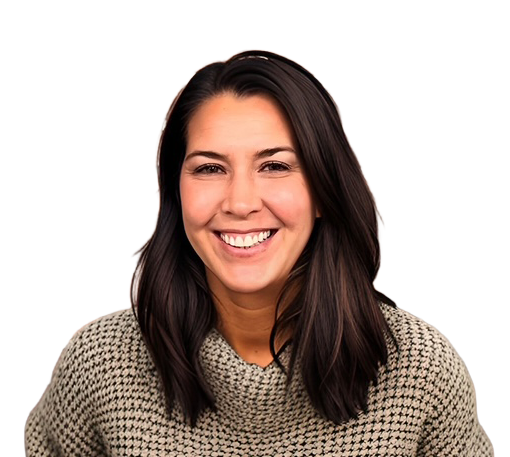When family members won’t share dementia care duties, navigating the challenges can be overwhelming. Considering the impact on everyone involved, it is essential to approach this situation with respect and understanding.
You’ll discover strategies for addressing the reluctance of family members to share dementia care duties. Additionally, you will learn alternative solutions for caregiving responsibilities.
.
Key Takeaways
- Approach the conversation with respect and understanding
- Make a list of caregiving tasks and discuss how each family member can contribute
- Encourage supportive conversations about caregiving responsibilities
- Explore alternative care options if family members are unwilling to share duties
- Prioritize self-care and seek help from professionals when needed

Strategies to Share Dementia Care Duties
Approaching Family Members
Talking about dementia care with family can be challenging. Start the conversation with respect for your loved ones’ traditions and beliefs.
Remember, you’re not alone in this. Many families face the challenge of sharing care duties. Here’s how to approach them:
- Find the right time, like during holiday gatherings, to discuss the topic.
- Share resources, like a Caregiving Navigator, to show you’re informed.
Consider asking someone outside the family, like a doctor, to help start the talk.
It’s not just a one-time chat. Be ready to talk more than once, and be patient.
Keep it light at first. Talk about someone else’s situation to ease into the subject.
Ask about their plans and if they feel ready for the future. It’s about creating a caring and open space for a tricky topic
.
Identifying Caregiving Tasks
When a loved one has dementia, every day can bring new challenges. Knowing what tasks must be done is the first step to sharing the load.
Start by making a list of daily duties. This can include anything from cooking and cleaning to managing medications and attending doctor’s appointments.
- Physical care: Helping with bathing, dressing, and eating
- Household tasks: Cleaning, laundry, and maintenance
- Health management: Organizing medications, scheduling medical visits
- Personal support: Keeping company, engaging in activities
It’s not just about dividing tasks; it’s about matching them with the right person. Think about who is best suited for each job.
Remember, some family members may be better at hands-on care, while others might excel in organizing or financial management.
It’s important to consider everyone’s strengths and limitations. This approach can help reduce stress and ensure your loved one gets the necessary care.
Supporting Family Conversations
Talking about dementia care with family can be tough. It’s essential to create a safe space where everyone feels heard. Plan to talk when everyone is calm and not busy. Keep the focus on what’s best for your loved one with dementia.
- Start by sharing feelings, not just facts.
- Listen more than you talk.
- Respect each other’s ideas and feelings.
- Be ready to speak more than once. It’s a big topic.
Remember, this isn’t about winning an argument. It’s about finding the best way to care for someone you love.
Sometimes, you need help from outside. A social worker or counselor can guide the talk. They know how to handle difficult chats. It might cost a little, but it’s worth it for peace in the family.

Exploring Alternative Care Options
When your family can’t pitch in, it’s time to look at other paths. Finding the proper care for a loved one with dementia is crucial.
There are many roads to explore. Adult day care and memory care are the most popular choices. Each has its benefits and costs.
It takes work to make these choices. But remember, you’re not alone. Many have walked this path and found light on the other side.
Here’s a quick guide to help you weigh your options:
- Adult Day Care: A safe place during the day. It can give caregivers a break.
- Memory Care: Special homes for those with memory issues. They offer 24/7 support.
- Assisted Living: Assisted living is a mix of independence and care. Suitable for those who can still do some things on their own.
Talk to other care professionals who know the ins and outs of care options. They can help you find the best fit.
And if you’re feeling the strain, see a therapist. It’s essential to take care of your health too.
Conclusion
Navigating the challenges of dementia care when family members are reluctant to share the responsibilities can be a daunting and emotional journey.
It is essential to approach the situation with empathy, understanding, and patience.
Caregivers can work towards a more balanced and sustainable caregiving arrangement by initiating open and respectful conversations, outlining specific tasks, and seeking support from external resources.
Remember, caregiving is a journey that requires collaboration, communication, and self-care.
If you are feeling overwhelmed, or think that you might need to move your loved one to a memory care home, reach out to us at Applewood Our House.

Frequently Asked Questions
What can I do when family members don’t share the responsibility for a senior with dementia?
When family members are unwilling to share the responsibility for a senior with dementia, it is vital to have open and honest conversations with them.
Express your concerns and discuss how everyone can contribute to caregiving duties.
How can I approach family members about sharing dementia care duties?
Approaching family members about sharing dementia care duties requires sensitivity and communication. Start by discussing the caregiving tasks that need to be done and how each family member can contribute.
What are some alternative care options for dementia patients if family members are not sharing the duties?
Suppose family members are not sharing dementia care duties. In that case, alternative care options such as adult day care and memory care are also available.
You should explore these options to ensure the well-being of a loved one with dementia.
How can I support family conversations about dementia care responsibilities?
Supporting family conversations about dementia care responsibilities involves creating a safe and open environment for discussion. Encourage family members to share their thoughts and concerns and work together to find solutions.
How can I identify specific caregiving tasks that need to be done for a senior with dementia?
To identify specific caregiving tasks for a senior with dementia, caregivers should list responsibilities and share them with family members. Discuss where the primary caregiver needs help and allocate tasks accordingly.
What impact can assuming caregiving duties for a loved one with dementia have on caregivers’ jobs and other responsibilities?
Assuming caregiving duties for a loved one with dementia can have a significant impact on caregivers’ jobs, children, and other responsibilities.
It is crucial to have open communication with family members to share the caregiving burden and prevent burnout. In most cases, it is also a brilliant idea to seek professional help.






